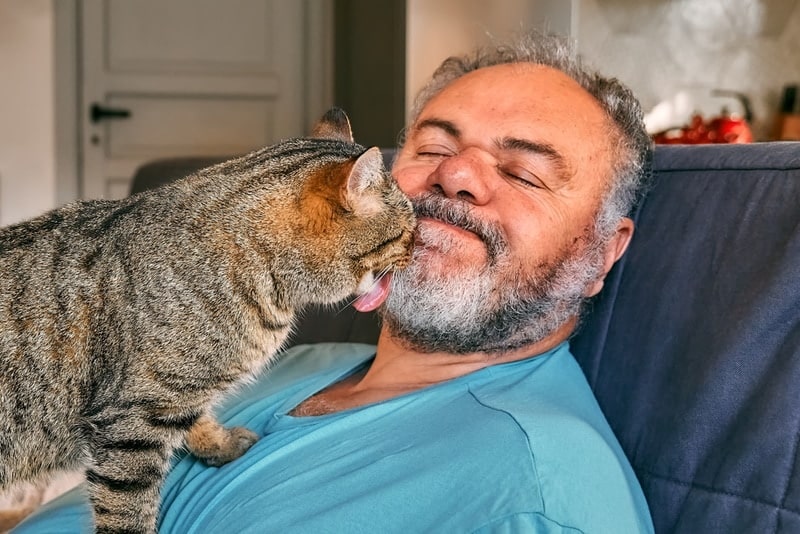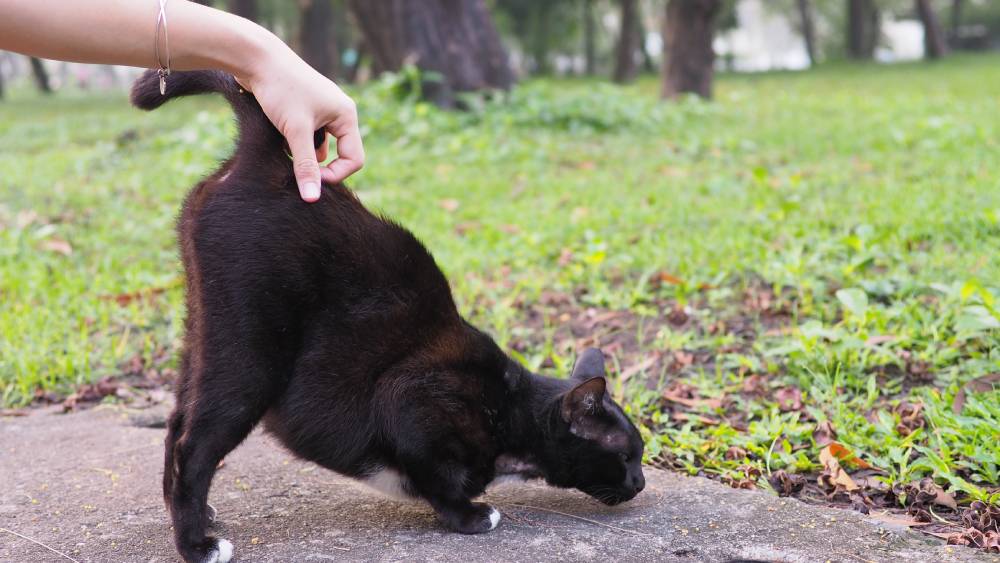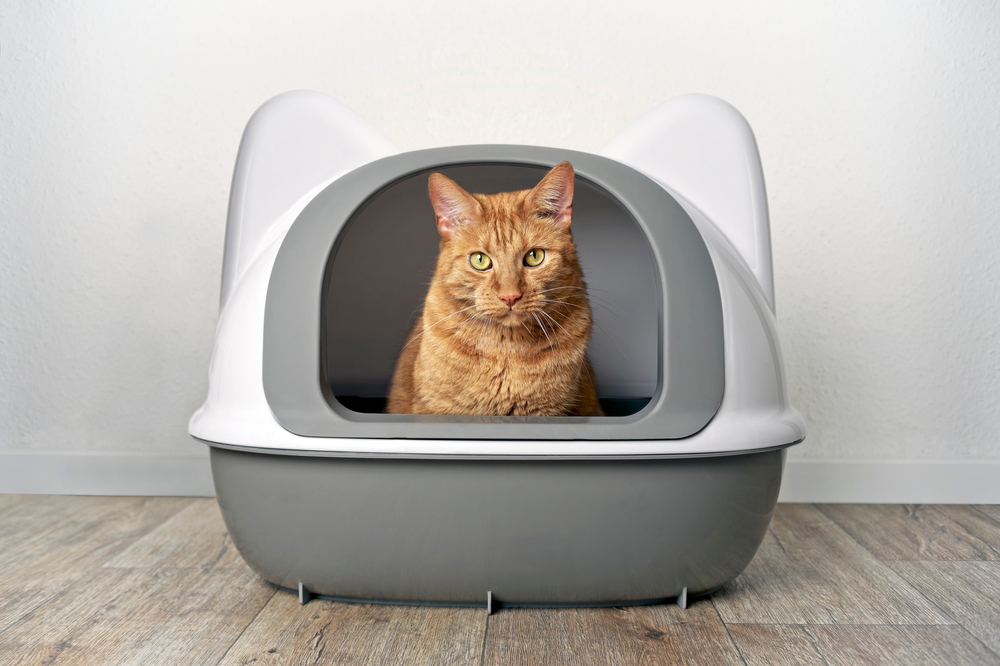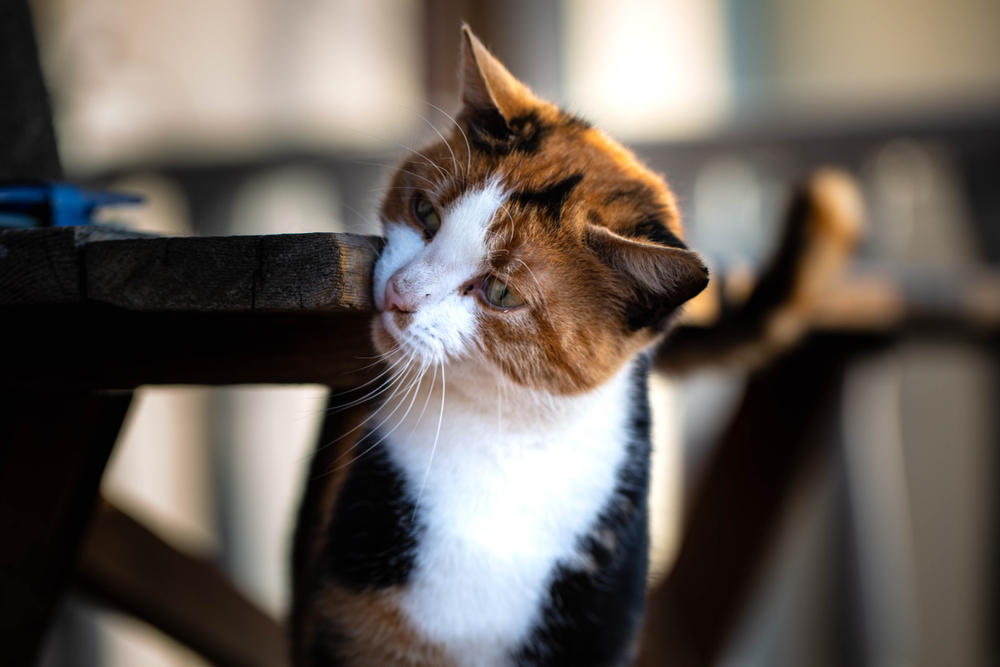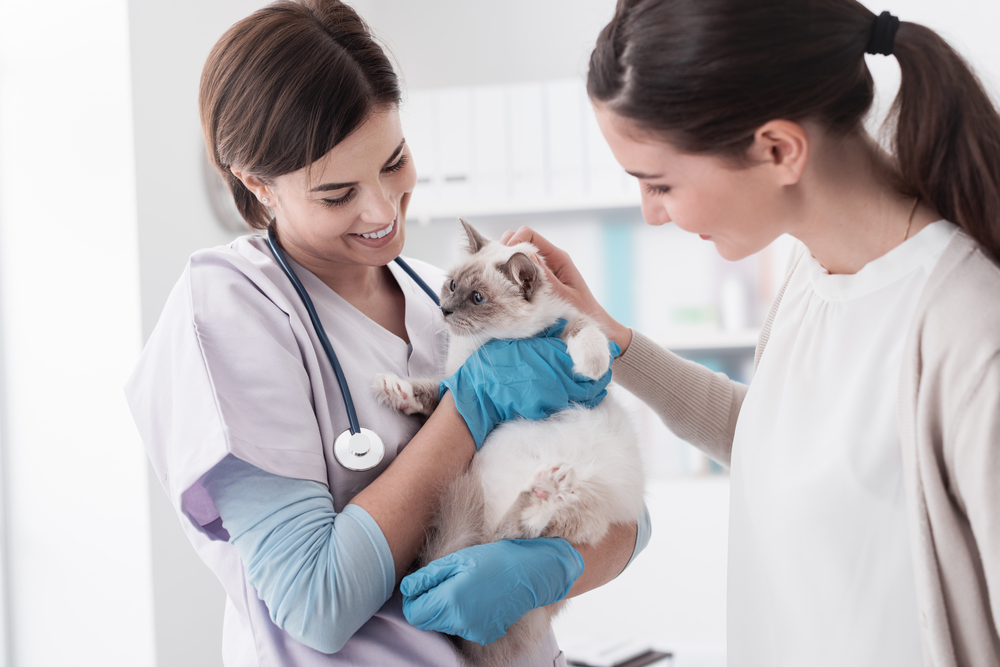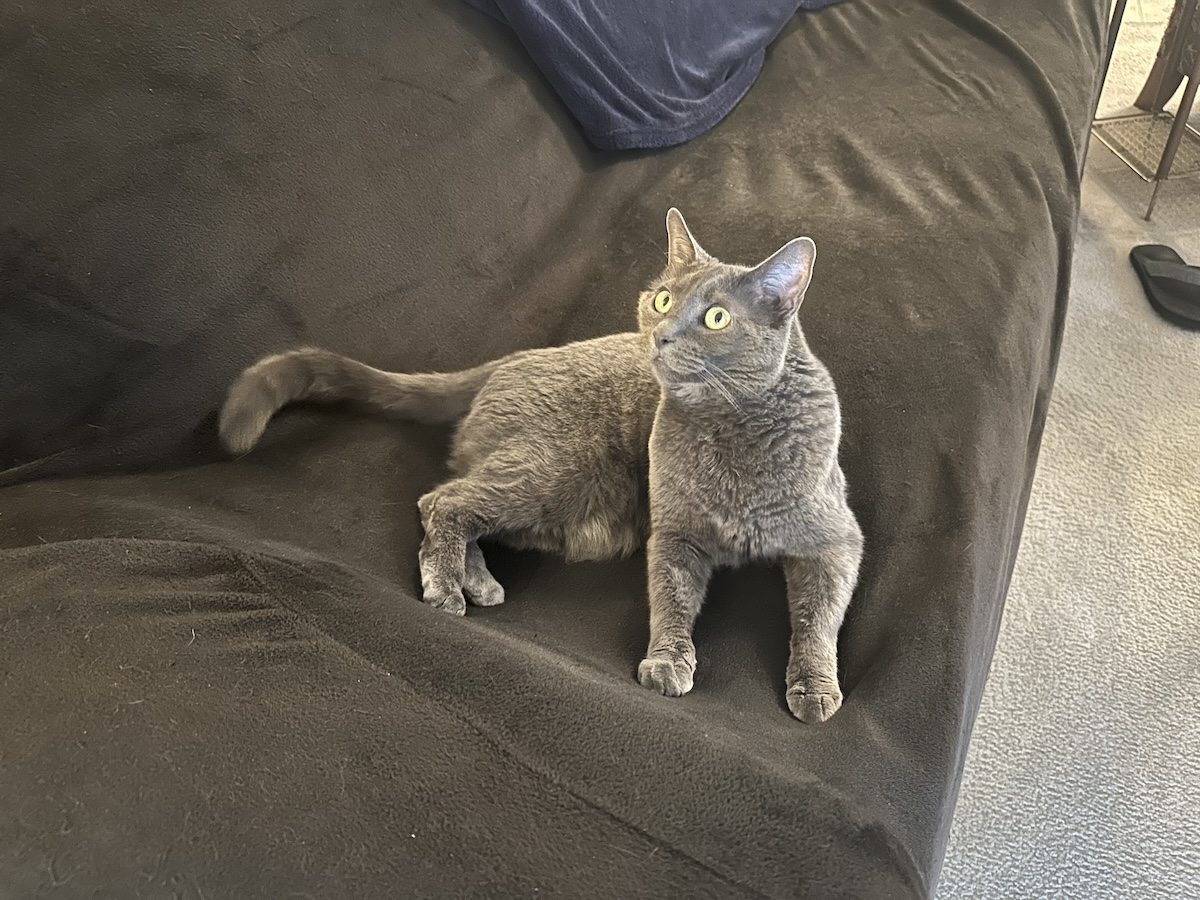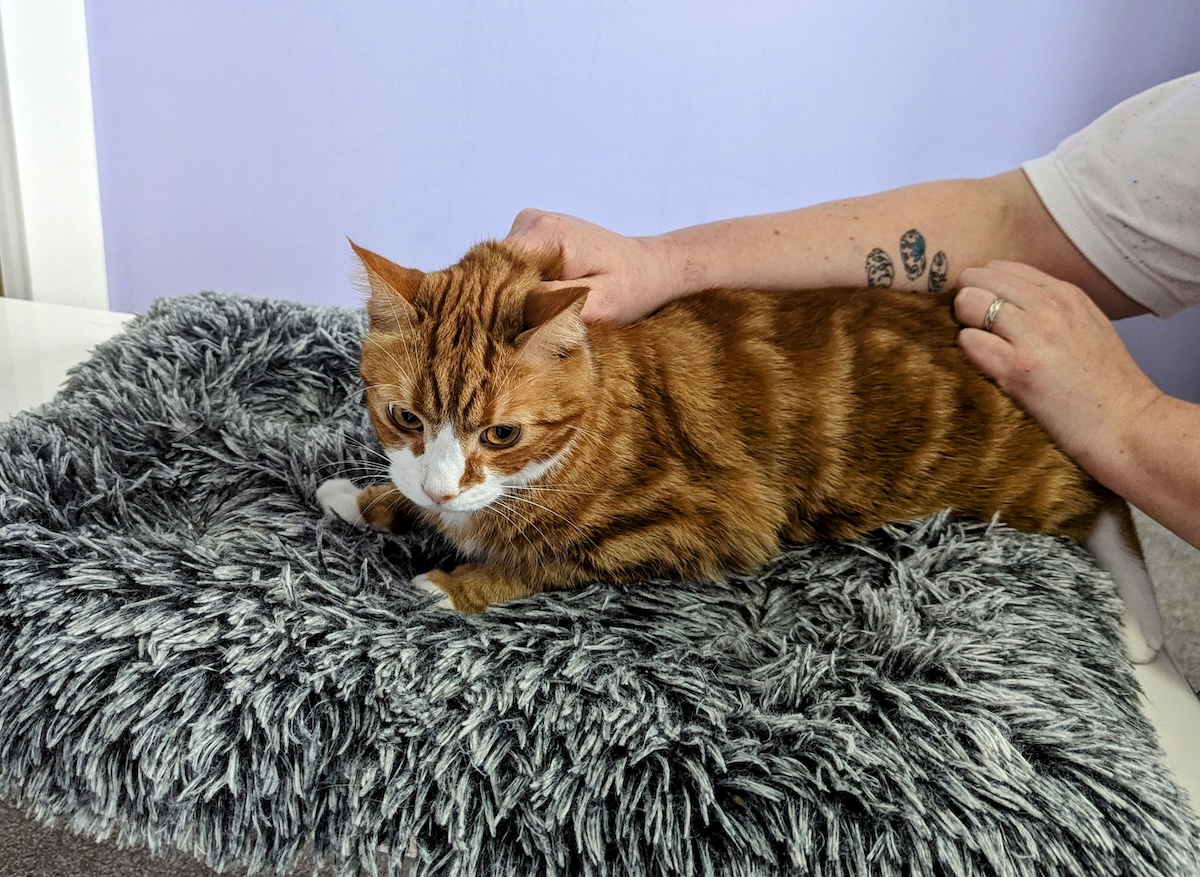A cat rubbing their face on you is one of the highest compliments you can receive from your furball, and it’s seriously adorable to boot. This behavior is called “bunting,” and it’s a common way cats greet their human companions, but why exactly do they greet us this way?
In this post, we share the three main reasons cats rub their faces on us and what it means for your relationship with your cat.
The 3 Reasons Why Cats Rub Their Faces on You
1. Marking You With Their Scent
Some of a cat’s scent glands are located in the cheeks, chin, and on the top of the head (there are more in the base of the tail and the paws), and when a cat rubs against something with their face, these glands release chemicals called pheromones onto you.
Depositing pheromones is a cat’s way of marking you as part of their territory and as a trusted and safe person, so it’s a real compliment! Your cat will continue to bunt you regularly to “reapply” those pheromones, especially when you get home and have new smells on you.
This ritual helps your cat to feel safe and secure and is a reflection of cats’ behavior in the wild, where they distribute scents among their social groups to create a sense of community. It also helps them root out who is and isn’t a member of the colony.
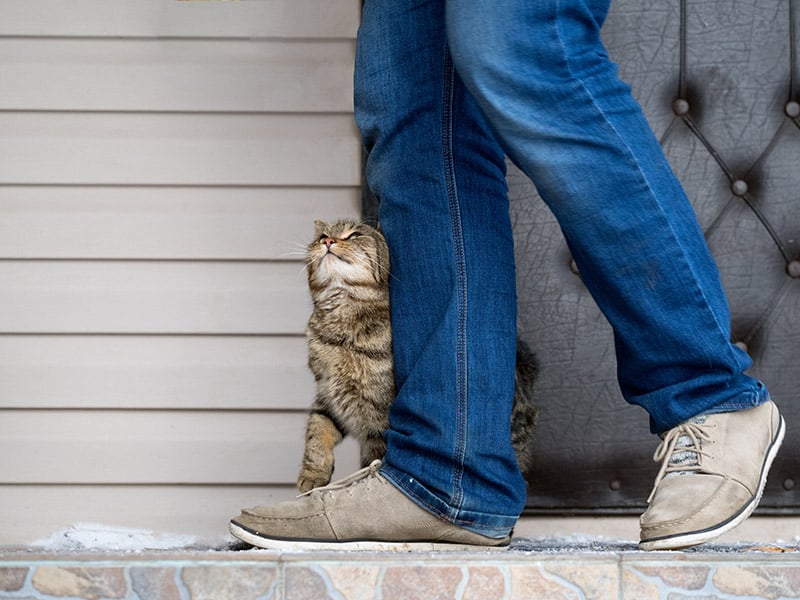
2. Getting to Know You
In addition to marking you as “territory,” cats bunt to gain information about you. This kind of bunting tends to happen when a cat is meeting someone for the first time, and it is a cat’s way of figuring out who you are and what you’re about.
However, this is more of an “assessment” rather than an invitation to be petted, so it’s best to avoid petting a cat right away if it’s the first time you’re meeting them. Let them do their thing, and if they keep coming back to you, then you can try petting them.
3. Getting Your Attention
Since cats can’t verbally communicate with you, they find other ways to let you know they want or need something, including vocalizing, following you about incessantly, and bunting you or objects like cupboards (where they know their food is).
This typically happens around routine times, like when you feed your cat, and it’s an indication that you should probably check their food bowl, water bowl, or litter box in case it needs a clean-out. As you get to know your cat, it should start to get easier to tell what your cat is trying to communicate when they rub on you or objects.
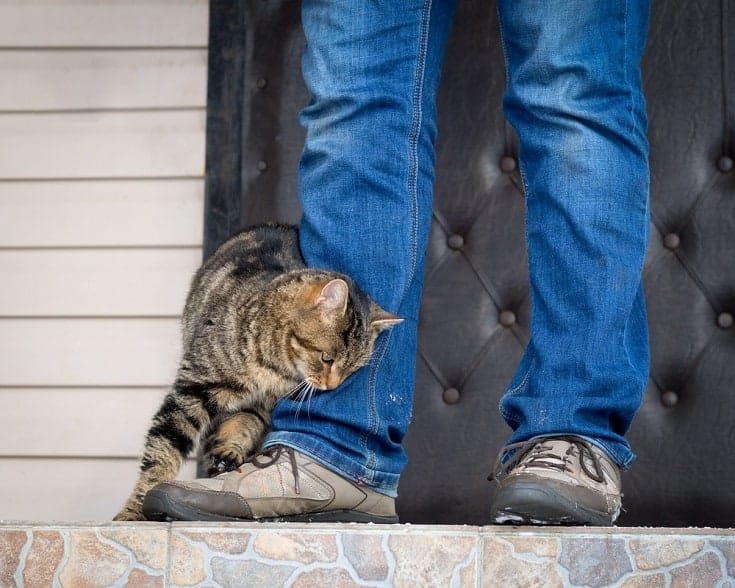
Other Reasons Cats Rub Against You (or Things)
When healthy cats bunt, it’s either a sign of affection or a means of marking you or letting you know they need something. However, if a cat isn’t feeling so good, they may rub against you to alert you to it.
Uncharacteristic, aggressive rubbing in particular against people or objects can be a sign of illness, so you’ll want to get this checked out by a vet.
- Excessive vocalization
- Head tilting
- Changes in eating or drinking habits
- Changes in bathroom habits
- Eye flicking
- Losing weight
- Lethargy
- Confusion
- Vomiting
- Diarrhea
- Overgrooming
- Hiding away
- Sitting in a hunched position
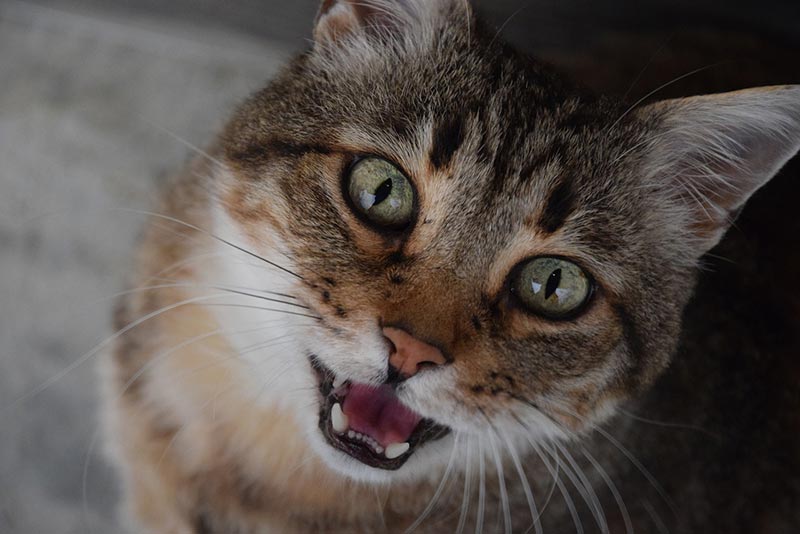
Conclusion
It’s fascinating to see how cats interact with humans and communicate to us their affection and needs, and tuning in to your cat’s cues can really help you understand them better and strengthen your bond.
However, if your cat has started acting out of character, like rubbing aggressively against you or showing signs of illness, please get them checked out by a vet.
See also:
- Safe Toys for Cats: Vet-Approved Options & What to Avoid
- 10 Vet Reviewed Facts About Cat Anal Glands
Featured Image Credit: Caterina Trimarchi, Shutterstock

